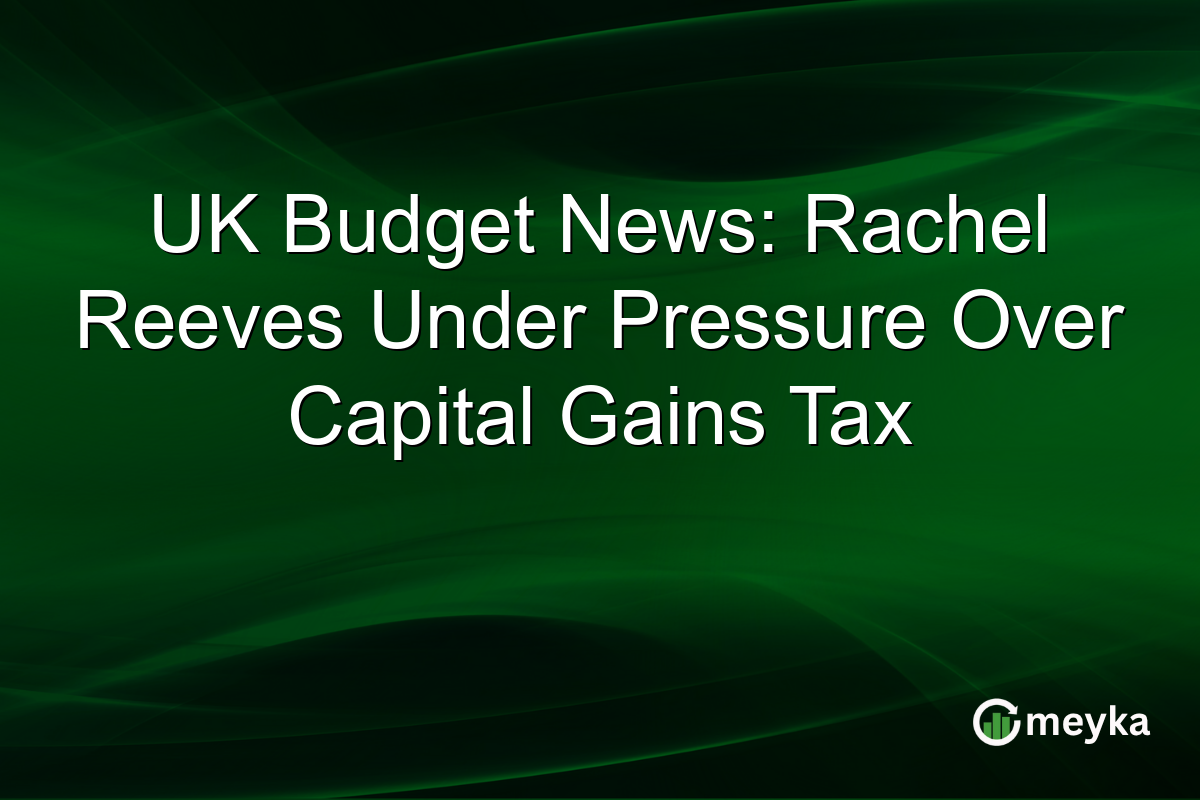UK Budget News: Rachel Reeves Under Pressure Over Capital Gains Tax
Interest in Rachel Reeves capital gains has spiked recently as the UK’s political circle heats up. Reports suggest that Rachel Reeves, Labour’s Shadow Chancellor, faces growing pressure to clarify Labour’s position on capital gains tax before the upcoming budget. Investors, business leaders, and taxpayers alike are watching closely. Tax changes in the UK, especially around capital gains, could significantly impact investments and property sales. The possibility of higher capital gains tax rates raises questions about Labour’s fiscal policy, potentially affecting government revenue and stakeholders’ decisions.
Current State of the UK Capital Gains Tax
The UK capital gains tax applies to the profit of an asset when it is sold. Depending on income levels, individuals can be taxed at rates of 10% or 20%, with higher rates for properties. Recent discussions indicate possible changes if Labour wins the next election. Rachel Reeves noted a review of the current tax stance, reflecting Labour’s broader fiscal strategy.
Labour’s Fiscal Policy Under Scrutiny
Labour’s fiscal policy suggests a more sustainable economic approach, emphasizing fairness and equity. Recent reports highlight tensions within the party over whether increasing capital gains tax could align with their wider economic goals. Should Labour raise these tax rates, it might significantly increase government revenue but also risk stifling investments and property transactions.
Impact on Investors and Business Leaders
Market participants are particularly concerned about potential tax changes. Higher capital gains tax rates could reduce the attractiveness of UK investments, affecting both local and international stakeholders. Investors are cautiously awaiting any official announcements, which could prompt market movements and alter the investment landscape. Observers are closely tracking social platforms for real-time updates.
Public Opinion and Market Sentiment
Public sentiment appears divided, balancing fiscal responsibility against potential economic slowdown. While some back higher tax rates to fund public services, others fear it may weaken the UK’s competitive edge. Rachel Reeves’ anticipated clarification will likely play a pivotal role in shaping future directives and the overall economic atmosphere.
Final Thoughts
Rachel Reeves capital gains tax positioning remains a pivotal aspect of Labour’s fiscal direction. As political and fiscal pressure mounts, clarity on this front is essential for investors, business leaders, and taxpayers. While some argue for increased rates to support public revenue, the impact on investments is a key concern. The upcoming budget and any formal announcements will be telling for Labour’s economic approach. Meanwhile, Meyka continues to offer real-time insights to keep investors informed amid such uncertainties.
FAQs
Capital gains taxes are taxes on the profit made from selling an asset. In the UK, these taxes vary based on income and asset type, with rates between 10% and 28%.
Rachel Reeves faces pressure to clarify Labour’s stance on capital gains tax, which is crucial before the upcoming budget. Decisions on this could affect investments and public revenue.
If capital gains tax rates increase, investing in the UK may become less attractive due to reduced profit margins, potentially impacting market sentiment and economic activity.
Disclaimer:
This is for information only, not financial advice. Always do your research.






